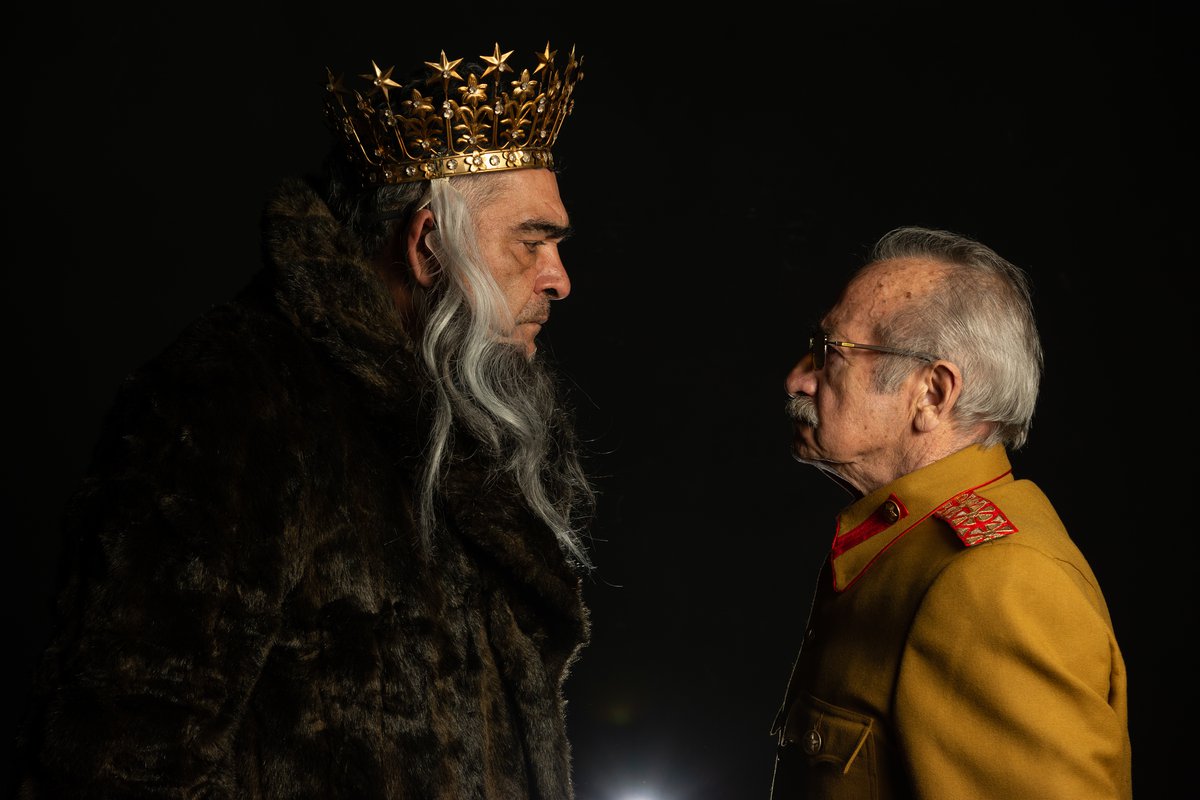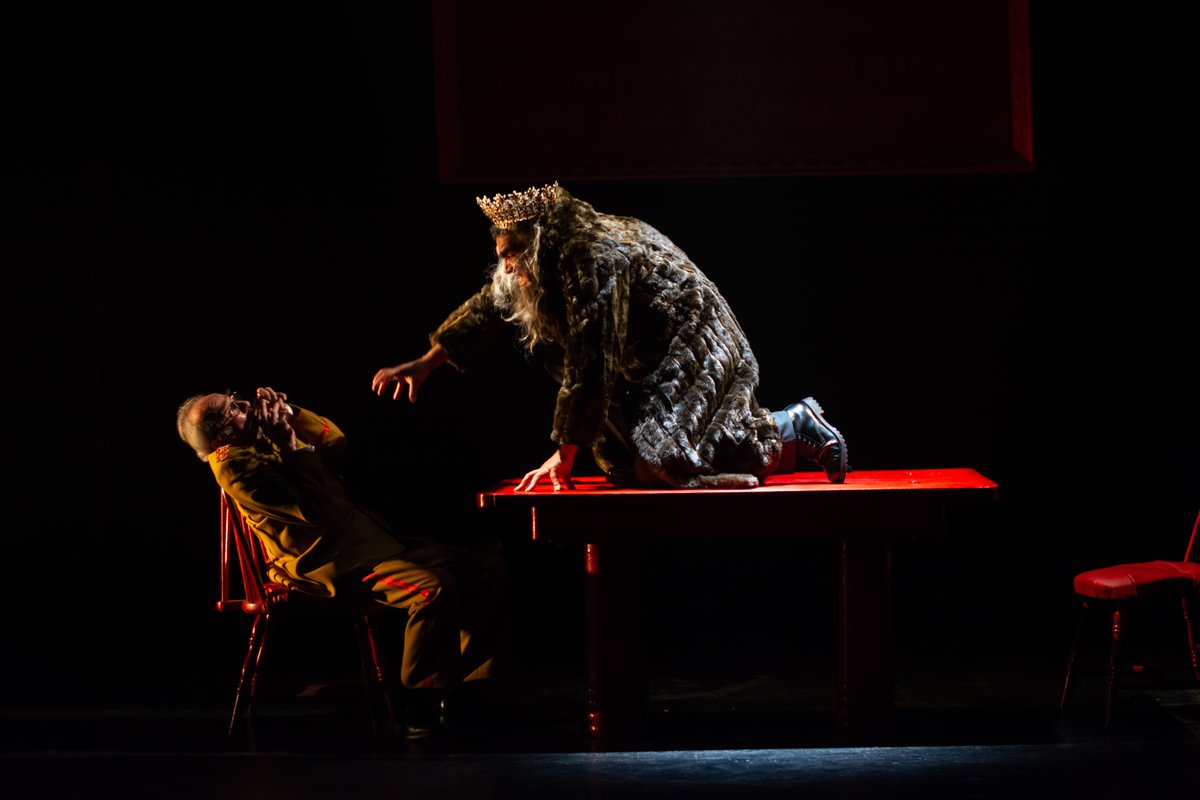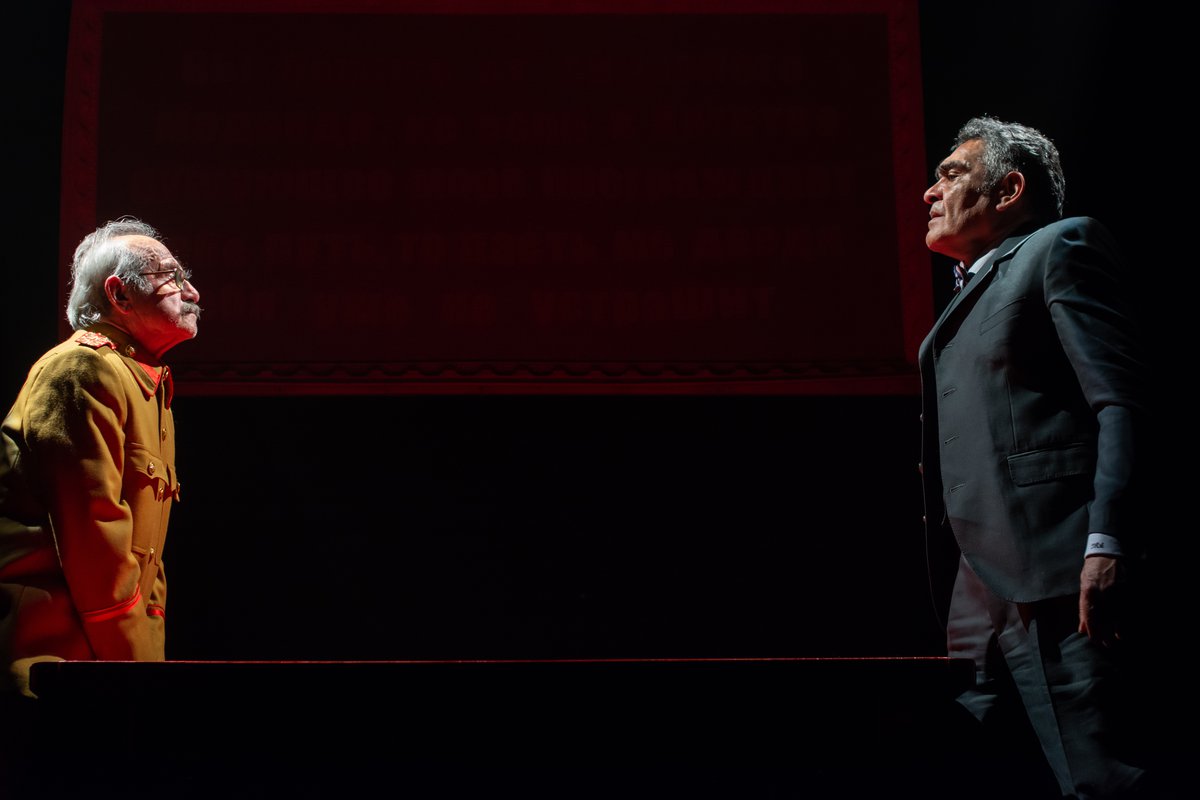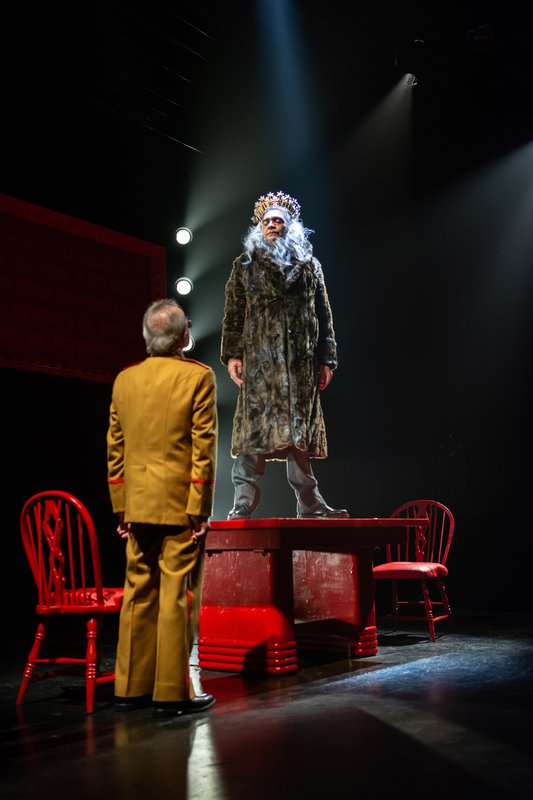Theatre
Jesús Urqueta Cazaudehore
Author
The Chilean-Italian Gastón Salvatore (Valparaíso 1941 - Venice 2015) has developed a successful literary career in Europe. In the 1970s he rubbed shoulders with Michelangelo Antonioni and in the early 1980s, he founded the magazine Trans-Atlantik with Hans Magnus Enzensberger. He was also one of the leaders of the student movement of May '68. In our country, his figure is not very well known, since he has made his entire career in Europe, mainly in Germany, where he is considered one of the most important playwrights of the last decades. He is the only foreigner to have won the Kleist Prize, the German equivalent of our National Prize for Literature, the same prize once won by Bertolt Brecht, Alexander Kluge, and Herta Müller. All of his plays, which total some twenty, have toured the world and have been translated into countless languages, including Polish and Russian. His most famous creation was Stalin (1985) was presented at the Schiller Theater in Berlin (1987) and the Circle Theater in Vienna.
Gastón Salvatore
Jesús Urqueta Cazaudehore
Direction
Stage director of vast trajectory. He has received the Círculo de Críticos de Arte Award for Best Direction for Arpeggione and Best National Staging for El mar en la muralla. His directed plays also include Primavera con una esquina rota, Cuestión de Principios, Pedro, Juan y Diego, La verdad, Colectivo total e inmediato de una inminente salvación terrestre, Prefiero que me coman los perros, Violeta, de tiernos y feroces, Todo se limita al deseo de vivir eternamente, Taská o como llenar este agujero que tengo en el corazón, C(civil) and Ele (la oficina). The director also holds a Master's Degree in Arts, a Diploma in Education, Memory and Human Rights, is a university professor, and has also studied journalism and documentary filmmaking.
PRODUCE

STALIN
Directed by Jesús Urqueta Cazaudehore | Playwriting by Gastón Salvatore
- Chile
- Español
- 80 minutos
- + 16
Under the portentous performances of Sergio Hernández and Daniel Antivilo, STALIN, directed by Jesús Urqueta, illuminates the past and points directly to our present. The play is a scenic, historical, and memory exercise; a necessary reflection on the politics and power of dictatorships.
The play STALIN sets its fiction in 1952 near Moscow at the dictator's residence.
Itsik Sager, an old Jewish actor and director of the Moscow Art Theater, who is performing Shakespeare's King Lear, is arrested without explanation, brought in front of Stalin, and questioned about the politicization of which he would be endowing his version of Shakespeare's play.
An atmosphere full of symbolism unfolds during the nocturnal conversation between these two elderly men. During the dialogue, which is interspersed with passages from Shakespeare's text, Sager - like so many others - is caught in the web of violence, terror, and persecution: the much-feared "pogrom".
STALIN
Directed by Jesús Urqueta Cazaudehore | Playwriting by Gastón Salvatore
- Chile
- Español
- 80 minutos
- + 16
Under the portentous performances of Sergio Hernández and Daniel Antivilo, STALIN, directed by Jesús Urqueta, illuminates the past and points directly to our present. The play is a scenic, historical, and memory exercise; a necessary reflection on the politics and power of dictatorships.
The play STALIN sets its fiction in 1952 near Moscow at the dictator's residence.
Itsik Sager, an old Jewish actor and director of the Moscow Art Theater, who is performing Shakespeare's King Lear, is arrested without explanation, brought in front of Stalin, and questioned about the politicization of which he would be endowing his version of Shakespeare's play.
An atmosphere full of symbolism unfolds during the nocturnal conversation between these two elderly men. During the dialogue, which is interspersed with passages from Shakespeare's text, Sager - like so many others - is caught in the web of violence, terror, and persecution: the much-feared "pogrom".
Fechas:
MON
15
jan
9 p.m.
TUE
16
jan
9 p.m.
WED
17
jan
9 p.m.
Finis Terrae Theatre
Providencia
Recomendamos llegar con 30 minutos de anticipación
Conversatorio post-función
Jesús Urqueta Cazaudehore
Author
The Chilean-Italian Gastón Salvatore (Valparaíso 1941 - Venice 2015) has developed a successful literary career in Europe. In the 1970s he rubbed shoulders with Michelangelo Antonioni and in the early 1980s, he founded the magazine Trans-Atlantik with Hans Magnus Enzensberger. He was also one of the leaders of the student movement of May '68. In our country, his figure is not very well known, since he has made his entire career in Europe, mainly in Germany, where he is considered one of the most important playwrights of the last decades. He is the only foreigner to have won the Kleist Prize, the German equivalent of our National Prize for Literature, the same prize once won by Bertolt Brecht, Alexander Kluge, and Herta Müller. All of his plays, which total some twenty, have toured the world and have been translated into countless languages, including Polish and Russian. His most famous creation was Stalin (1985) was presented at the Schiller Theater in Berlin (1987) and the Circle Theater in Vienna.
Gastón Salvatore
Jesús Urqueta Cazaudehore
Direction
Stage director of vast trajectory. He has received the Círculo de Críticos de Arte Award for Best Direction for Arpeggione and Best National Staging for El mar en la muralla. His directed plays also include Primavera con una esquina rota, Cuestión de Principios, Pedro, Juan y Diego, La verdad, Colectivo total e inmediato de una inminente salvación terrestre, Prefiero que me coman los perros, Violeta, de tiernos y feroces, Todo se limita al deseo de vivir eternamente, Taská o como llenar este agujero que tengo en el corazón, C(civil) and Ele (la oficina). The director also holds a Master's Degree in Arts, a Diploma in Education, Memory and Human Rights, is a university professor, and has also studied journalism and documentary filmmaking.
PRODUCE




